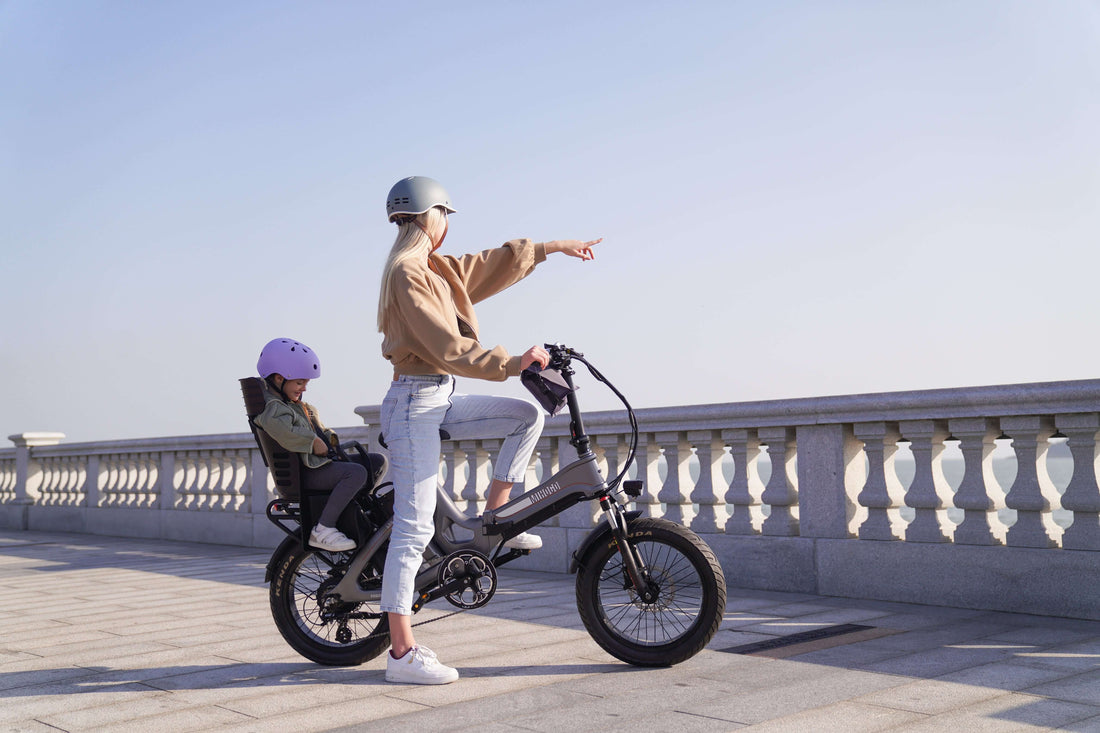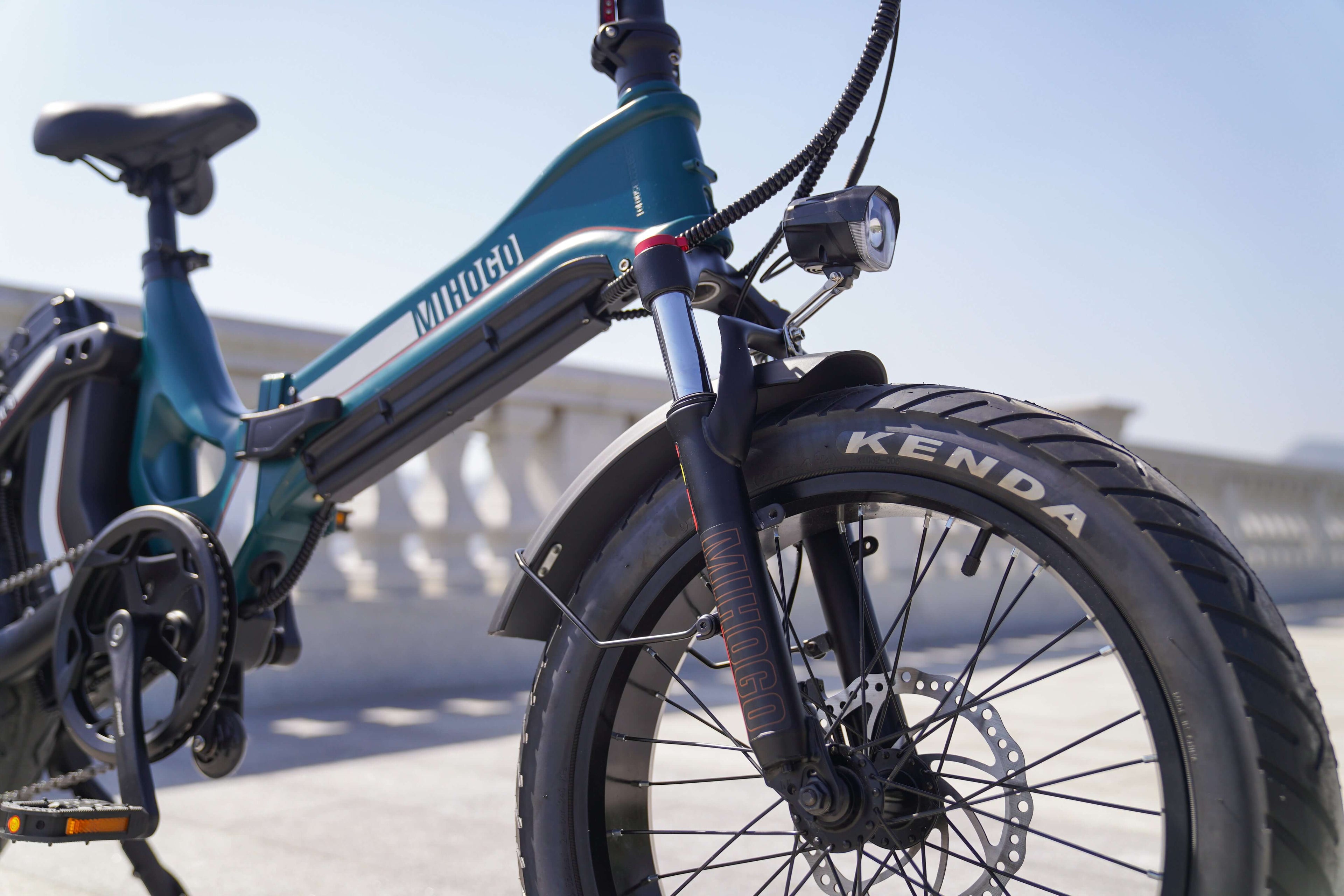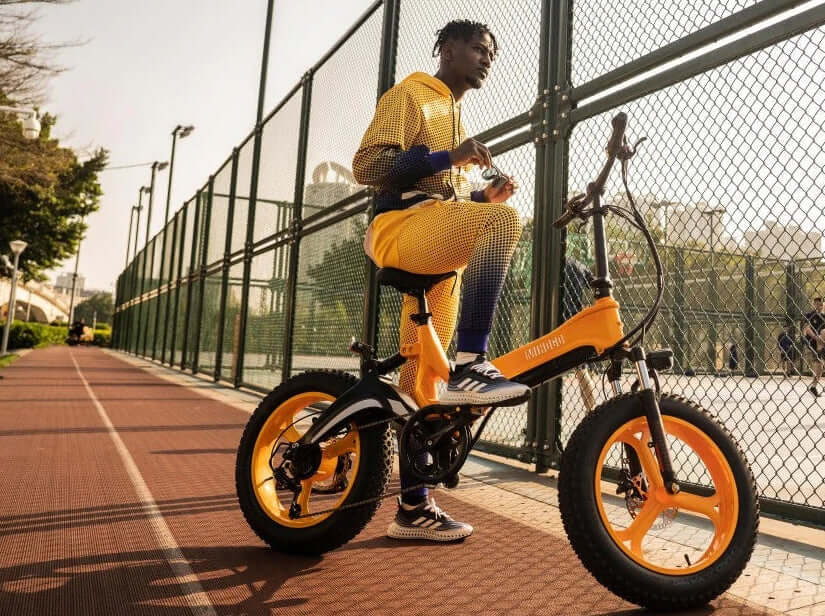Understanding Your Mihogo's Water Resistance Technology
IP Rating System: Your Shield Against the Elements
All Mihogo e-bikes are designed with robust Ingress Protection (IP) ratings, the international standard that determines how well your e-bike can withstand water and dust intrusion. Understanding these ratings is crucial for rainy season preparation.
MIHOGO ONE Utility E-Bike Features:
- IPX5 water-resistant standard for comprehensive protection
- Dual 48V battery system with sealed compartments
- Aerospace-grade magnesium alloy frame resistant to corrosion
- Smart display with weather-resistant coating
MIHOGO RX 2.4 Specifications:
- IPX4 minimum protection against water splashes from any direction
- Dual suspension system with sealed pivot points
- Integrated lighting system with waterproof LED components
- Torque sensor technology protected by rubber gaskets
MIHOGO Mini Advantages:
- IP65 waterproof rating for superior weather protection
- TÜV Rheinland safety certification ensuring European standards
- Compact folding design for easy storage during storms
- 350W brushless motor with sealed housing
Battery Protection: Your Power Source's Lifeline
The heart of your Mihogo e-bike - its battery system - requires special attention during rainy seasons. Our advanced battery technology incorporates multiple protection layers:
Mihogo ONE's Advanced Battery Protection:
- Semi-solid core lithium-ion batteries with 10-year lifespan
- Dual-battery system allows redundancy during wet conditions
- Smart energy management prevents water damage through intelligent monitoring
- Removable design for safe indoor charging during storms
Essential Pre-Rainy Season Maintenance Checklist
1. Comprehensive Weather Inspection
Weekly Assessment Tasks:
- Inspect battery compartment seals for wear or damage
- Check electrical connections for corrosion or loose contacts
- Test all lighting systems including headlights, taillights, and turn signals
- Examine tire tread depth - minimum 2mm for wet weather riding
- Verify brake performance with specific attention to wet-weather stopping power
2. Protective Measures Implementation
Weatherproofing Accessories:
- Install mudguards to protect motor and battery from road spray
- Apply protective wax to frame and metal components
- Use silicone sealant around vulnerable connection points
- Invest in waterproof panniers for cargo protection
- Consider bike covers for outdoor storage
3. Battery Care and Maintenance
Monthly Battery Maintenance:
- Remove battery during heavy storms to prevent water ingress
- Store batteries at 20-25°C in dry indoor environment
- Use petroleum jelly on battery terminals to prevent corrosion
- Check charging port covers ensure they're properly sealed
- Monitor battery performance for any weather-related degradation
Riding Safely During European Rainy Seasons
Understanding Weather Patterns and Riding Conditions
European Rainy Season Characteristics:
- October to March: Peak precipitation months across most of Europe
- Temperature ranges: 5-15°C requiring specialized gear
- Reduced visibility: Up to 50% less visibility during heavy rain
- Road conditions: Increased risk of flooding and surface water
Essential Riding Techniques for Wet Conditions
Speed and Braking Adjustments:
- Reduce speed by 30-40% on wet surfaces
- Increase braking distance by 25% minimum
- Use gentle, progressive braking to avoid wheel lock-up
- Maintain lower tire pressure for increased traction (check manufacturer recommendations)
Visibility and Safety Protocols:
- Activate all lights even during daytime riding
- Wear reflective clothing to increase visibility by 200%
- Use hand signals clearly and early
- Avoid sudden movements or sharp turns
- Stay visible to other road users at all times
Post-Ride Maintenance: Your Wet Weather Routine
Immediate Post-Ride Care (Within 30 Minutes)
Critical First Steps:
- Wipe down frame and components with a clean, dry cloth
- Remove and dry battery if heavily exposed to water
- Check for water accumulation in display and control areas
- Inspect brake function and test assist levels
- Store in dry, ventilated area to prevent moisture buildup
Weekly Deep Cleaning Protocol
Professional Maintenance Routine:
- Clean and re-lubricate chain with waterproof lubricant
- Inspect electrical connections for moisture or corrosion
- Check tire pressure and tread wear
- Test all electronic functions including display and assist modes
- Apply protective coating to exposed metal surfaces
Chain and Drivetrain Care
Lubrication Best Practices:
- Use wet-weather chain lubricant designed for European conditions
- Apply lubricant to clean, dry chain for optimal penetration
- Wipe excess lubricant to prevent dirt accumulation
- Inspect sprockets and cassette for wear indicators
- Schedule professional drivetrain service every 1,000km in wet conditions
Advanced Weatherproofing Techniques
Professional Protective Coatings
Frame Protection Options:
- Ceramic coating application for superior water repellency
- Wax-based protective layers for traditional maintenance
- Hydrophobic treatments for long-term protection
- Anti-corrosion sprays for metal components
Storage Solutions for Wet Weather
Indoor Storage Optimization:
- Use moisture-absorbing materials like silica gel in storage areas
- Ensure proper ventilation to prevent condensation
- Elevate bike to prevent floor moisture contact
- Maintain consistent temperature to avoid thermal cycling damage
Outdoor Storage Protection:
- Invest in premium bike covers with ventilation systems
- Use waterproof locks and security systems
- Position away from direct water flow under overhangs
- Regular inspection of outdoor storage conditions
Troubleshooting Common Wet Weather Issues
Electrical System Problems
Battery Performance Issues:
- Reduced range: Often caused by cold temperatures and increased resistance
- Charging problems: Moisture in charging port requires immediate attention
- Display malfunctions: Usually resolved by drying and system reset
- Motor cutting out: Check connections and allow components to dry
Mechanical Component Concerns
Brake Performance:
- Squeaking brakes: Normal when wet, improves with gentle use
- Reduced stopping power: Ensure brake pads are properly bedded
- Brake lever feel: Adjust cable tension for wet weather conditions
Tire and Traction Issues:
- Slipping on wet surfaces: Check tire pressure and tread depth
- Puncture frequency: Inspect for debris and consider puncture-resistant tires
- Wheel alignment: Wet conditions can reveal minor alignment issues
Seasonal Maintenance Schedule
Autumn Preparation (September-November)
- Comprehensive system inspection before rainy season
- Battery conditioning for cold weather performance
- Tire replacement if tread depth insufficient
- Brake system service including pad replacement
Winter Maintenance (December-February)
- Weekly cleaning routine due to increased exposure
- Battery storage optimization during extreme weather
- Salt corrosion prevention in coastal areas
- Emergency kit preparation for unexpected weather
Spring Preparation (March-May)
- Post-winter system assessment for weather damage
- Deep cleaning and servicing of all components
- Component replacement as needed
- Professional tune-up for optimal performance
Professional Maintenance Services
Authorized Mihogo Service Centers
Service Intervals:
- Monthly inspections during rainy season
- Quarterly professional service for electrical systems
- Annual comprehensive overhaul including IP rating verification
- Emergency service for weather-related damage
Warranty Considerations
Weather-Related Coverage:
- Water damage protection under normal IP rating conditions
- Component replacement for manufacturing defects
- Professional installation of weatherproofing accessories
- Extended warranty options for harsh weather environments
Emergency Preparedness and Kit Essentials
Essential Emergency Kit Components
Carry-On Essentials:
- Waterproof toolkit with basic repair items
- Emergency contact information for roadside assistance
- Spare battery for extended range in poor conditions
- Portable phone charger for navigation and emergency calls
- Reflective emergency vest for visibility
Weather Alert Systems
Digital Monitoring:
- Weather apps with real-time precipitation alerts
- Route planning tools that account for weather conditions
- Emergency contact systems for severe weather situations
- GPS tracking for location sharing during poor visibility
Long-Term Investment Protection
Cost-Benefit Analysis of Weatherproofing
Financial Considerations:
- Preventive maintenance costs: €50-100 annually
- Component replacement savings: Up to €500 annually
- Extended lifespan: 2-3 years additional service life
- Resale value maintenance: 15-20% higher value retention
Insurance and Protection Plans
Coverage Options:
- Comprehensive e-bike insurance including weather damage
- Component replacement plans for electrical systems
- Professional maintenance packages with weather protection
- Theft and damage protection during storage
Conclusion: Your Mihogo's Rainy Season Success
Proper weatherproofing and maintenance of your Mihogo e-bike during Europe's rainy season ensures not only your safety but also the longevity of your investment. With IP ratings ranging from IPX4 to IP65 across our model range, combined with regular maintenance and proper riding techniques, your Mihogo will continue to provide reliable, efficient transportation regardless of weather conditions.
Take Action Today: Visit our collection of electric bikes to explore weatherproofing accessories and maintenance products specifically designed for European conditions. Your riding adventure shouldn't stop when the rain starts.






